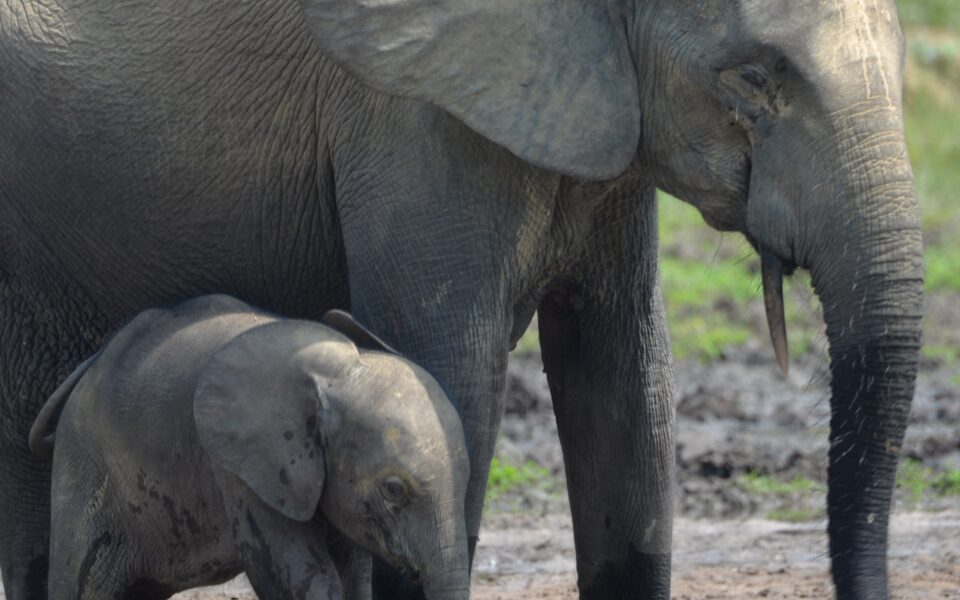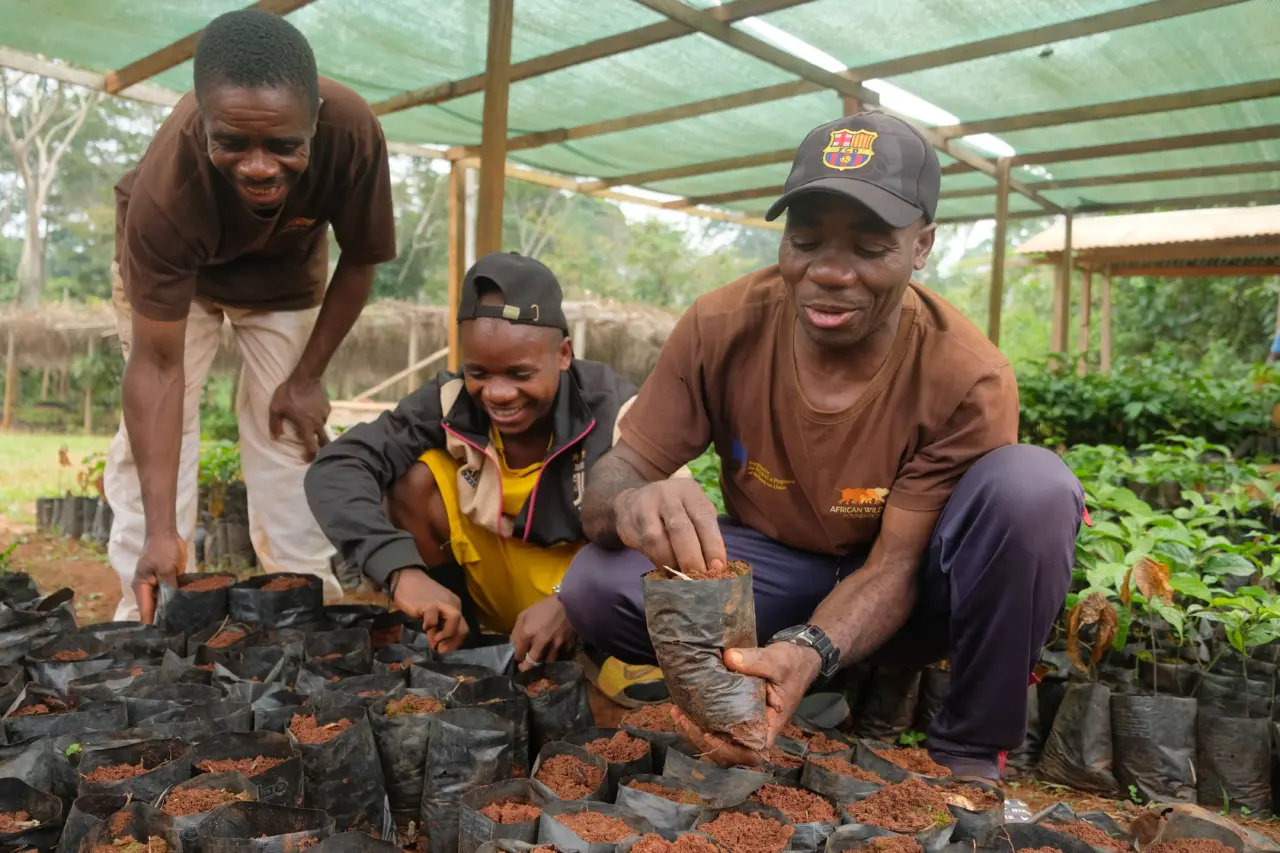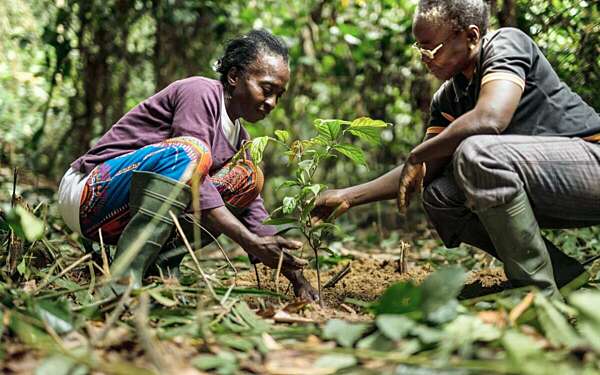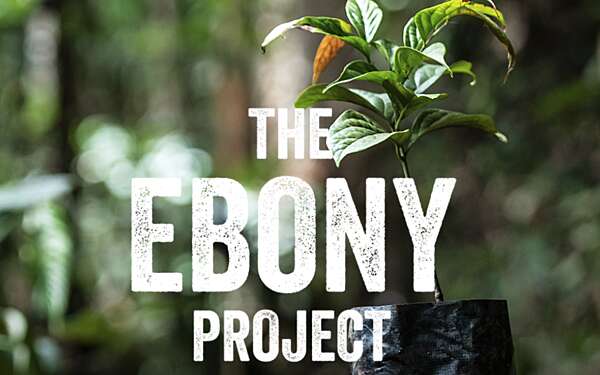
New "Science Advances" paper highlights how wildlife loss threatens forest regeneration in the Congo Basin
A new study led by Dr. Vincent Deblauwe, head of the Ebony Project at the Congo Basin Institute (CBI), reveals how the decline of forest elephants is directly impacting the regeneration of ebony trees in Central Africa.
Published in Science Advances, the article—“Declines of ebony and ivory are inextricably linked in an African rainforest”—shows that the loss of elephants, key seed dispersers in Afrotropical forests, is threatening the survival of slow-growing hardwoods like ebony. These findings have major implications for forest ecology, biodiversity, and the future of sustainable restoration efforts in the Congo Basin.
A Milestone for the Ebony Project
The study builds on years of fieldwork and ecological research led by Vincent Deblauwe and the interdisciplinary team at CBI.
In a recent UCLA article interviewing the team on this project, Deblauwe explained that elephants eat the fruits from ebony and other trees, carrying the seeds in their digestive tracts for miles before depositing them, still intact, on the forest floor. Surrounded by elephant dung, and without the edible fruit the seeds come encased in, the researchers found the ebony seeds were protected from rodents that would otherwise eat them.

“People think, ‘Oh, it’s a shame these magnificent creatures are threatened,’ but what they don’t understand is that we won’t just lose elephants, we’ll also lose the ecological functions they provide,” said Dr. Thomas Smith, senior author of the study, CBI Co-Director and a UCLA distinguished research professor of ecology and evolutionary biology. “Forest elephants are a keystone species that disperse the seeds of both large and small rainforest trees. If they go extinct, we risk losing the ecological processes that sustain rainforests.”
This study, involves authors from universities and institutes in Cameroon, Australia and four countries in Europe, as well as coauthors from rural Bantu and Indigenous Baka communities. As part of the research, the Congo Basin Institute provided local communities with fruit-tree saplings, ebony tree seeds, training and plant nurseries. The fruit trees provide food and income, and local and Indigenous people joined the effort to grow ebony saplings from seeds. All the trees belong to the locals.

“My long view is that this project offers a grassroots approach to rainforest restoration,” Smith said.
Through the Ebony Project, launched in 2016 in partnership with Taylor Guitars, the team has been working to restore tropical forests in southern Cameroon while improving local livelihoods.
The Ebony Project continues to be shaped by a rare partnership between science, community, and industry. Bob Taylor, co-founder of Taylor Guitars and a member of CBI’s External Advisory Board, has been a key supporter of sustainable sourcing and forest restoration.
“I’ve spent my life building guitars and growing a guitar company, but being part of The Ebony Project has been one of the most fulfilling experiences of my life,” Taylor said. “It reminds me that sometimes the most important work is about planting seeds for others to benefit from.”

Read:
- the full article Declines of ebony and ivory are inextricably linked in an African rainforest
- UCLA Announcement and new article story
Watch:
Listen:
"We won’t just lose elephants, we’ll also lose the ecological functions they provide"
— Dr. Thomas Smith

